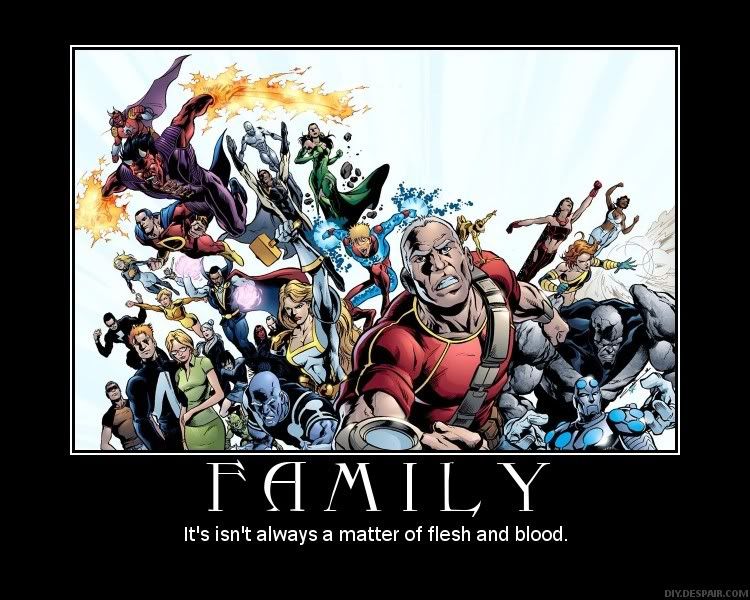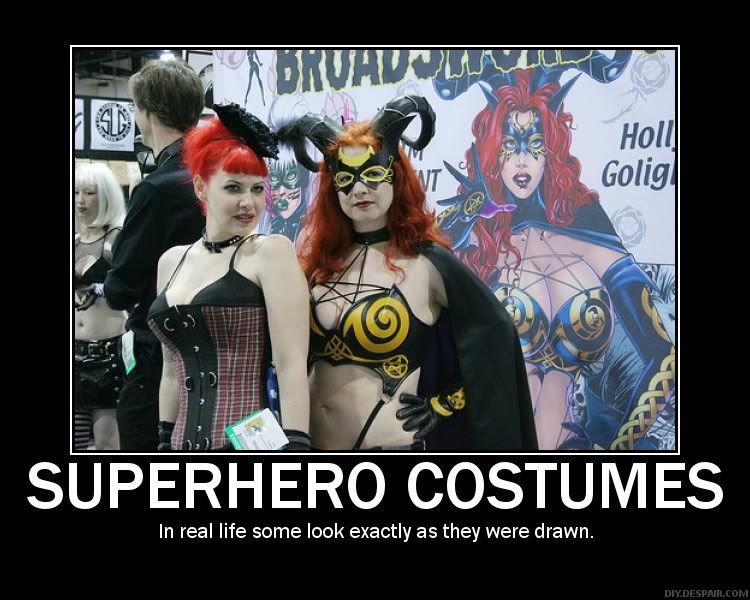
Just a thought:
Imagine that today, you found out that Marvel and DC were gone. That there would be no new Marvel or DC titles (or their various subsidiaries - Wildstorm, Vertigo, etc) hitting the shelves next Wednesday.
What do you think would happen?
Well, over the next few days, I'm going to give you my own thoughts on the matter. You can tell me what you think, and if you think I'm right.
First, let's look at the top level: copyright, the characters, and the creators.
In the absence of a publishing body, the rights to the various characters would become very hotly contested. In the case of DC, we'll assume that Time-Warner exists, so it's safe to assume that most of the rights to the various DC characters would revert to them, with the exception of those that are creator owned (Kurt Busiek's Astro City, for one) , those that could be successfully contested in court, and those with some kind of clause in the contract that would give the exclusive rights back to the creator (most Wildstorm properties). In the case of Marvel Comics properties, I would expect those to generate a lot of court battles and open bidding between rival media conglomerates, creators, and maybe even fans.
Now, the important thing to realize about this is that once the comic companies are gone, the shared superhero universe is effectively dead. No more multiversal Crisis, no Civil Secret Wars. Those are done. Over. Kaput.
The reason I say that is that the media companies who would end up with the rights to any given superhero character would either A) not bother publishing comics at all, or B) would license the comic rights out to various companies (much like other licensed property comics have done - Transformers, Star Wars, Buffy the Vampire Slayer, etc. etc.). There's no incentive for them to really do big epic crossover material. After all, Angel and Buffy are intrinsically part of the same shared universe, but even when they were both owned by Dark Horse, no one really bothered to team them up all that often, did they?
Another thing to keep in mind is that the demise of Marvel and DC as comic publishing entities would cripple Diamond Distributors, as marketing the familiar wares of the big two are their primary business. Diamond would have to make some very rapid decision making about how they would proceed and how to adapt their business model.
Every other comics company would be forced to do similar re-evaluations, not just of how to distribute their products, but also what they'll be distributing. They'll have to spend a lot of time discussing the markets they want to go for, what kind of products to produce, and how to get them into customers hands. They are going to have to make serious, critical, business decisions. I'm not going to give you some kind of utopist thinking here; the vast majority of these companies will likely fail unless there are some major commercial successes early on to serve as a model for the others. However, once this has been accomplished, you'll see an entirely new industry, with a lot of different materials in a much more diverse selection of genres and materials.
Of course, THAT might be too much to hope for, but it's a nice hope anyway.
Tomorrow: What about the Retailers?

No comments:
Post a Comment